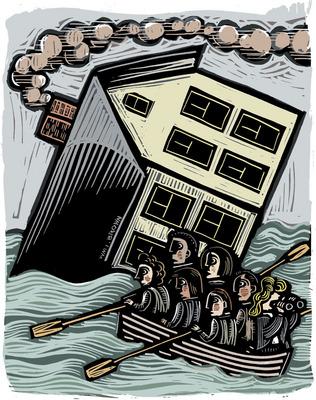- MENU
- HOME
- SEARCH
- WORLD
- MAIN
- AFRICA
- ASIA
- BALKANS
- EUROPE
- LATIN AMERICA
- MIDDLE EAST
- United Kingdom
- United States
- Argentina
- Australia
- Austria
- Benelux
- Brazil
- Canada
- China
- France
- Germany
- Greece
- Hungary
- India
- Indonesia
- Ireland
- Israel
- Italy
- Japan
- Korea
- Mexico
- New Zealand
- Pakistan
- Philippines
- Poland
- Russia
- South Africa
- Spain
- Taiwan
- Turkey
- USA
- BUSINESS
- WEALTH
- STOCKS
- TECH
- HEALTH
- LIFESTYLE
- ENTERTAINMENT
- SPORTS
- RSS
- iHaveNet.com: Economy
by Mark Miller

The housing market is showing some tentative signs of recovery.
But if you're a baby boomer relying on housing wealth to help fund retirement, don't hold your breath.
True, the most recent Standard and Poor's / Case-Shiller home price index showed that U.S. home prices rose in May on a month-to-month basis for the first time since July 2006. But that shouldn't be taken as a sign that the market is going to rebound to pre-crash levels anytime soon.
At best, the Case-Shiller index hints that we may have found a bottom in housing. Maybe.
Housing's direction is no small matter for the baby boom generation now approaching retirement.
When the housing market was soaring, many baby boomers thought of their homes as piggy banks that could be cracked open to finance retirement.
High housing prices would allow us to leverage equity to finance our lifestyles, buy second homes or pay entry fees into retirement communities. That thinking was encouraged by the financial services industry, which aggressively marketed low-interest mortgage debt and equity-to-cash products like home equity loans and reverse mortgages.
But the piggy bank was smashed when the housing market crashed.
To be sure, the housing debacle has been painful for every American demographic group. But older Americans have the greatest exposure to real estate. Consider:
Seventy-nine percent of Americans over age 55 own their own homes, compared with a national median ownership rate of 69 percent As prices soared during the bubble era, boomers took on larger mortgages, and a greater percentage are now carrying mortgage debt well into their 60s than ever before.
Home equity accounts for one-third to half of all net worth for older Americans
The only larger source of household wealth is
Thirty percent of Americans age 45 to 54 are underwater on their mortgages
According to one study, they owe more than their homes are worth, and would need to bring cash to a closing.
Warning signs were flashing in the housing market well ahead of the crash, due to basic laws of supply and demand.
Baby boomers have been a key driver of housing demand over the past several decades due to our generation's extraordinary size. Now, we constitute an enormous group of potential home sellers as we age and begin to sell homes in order to downsize or move.
But boomers need to sell to a smaller, less affluent pool of buyers.
"The most important factor that pushes prices up is when you have more buyers than sellers," says Dowell Myers, a professor
of urban planning and demography at the
"The baby boom generation has pushed up housing prices over the past three decades, as they steadily moved up the ladder and bought housing. So people think the last three decades are normal. But at some point boomers will start to cash out."
Myers thinks the buy-sell ratios could be improved if the rate of immigration to the U.S. were to increase significantly, creating greater demand for housing.
Likewise, echo boomers -- the children of baby boomers -- could have a positive impact as they come into their prime home buying years -- if housing becomes sufficiently affordable.
While prices have been plunging, the affordability gap remains sizeable, because median incomes of first-time homebuyers have been in a long-term, secular fall, dropping 15 percent since 1976. Before the crash, buying power was propped up by liberal bank lending policies that have now largely been curbed.
That means echo boomers and immigrants aren't likely to ride to the rescue of housing without a general pick-up in the economy -- and even then, prices aren't likely to recover to pre-crash levels.
© REAL ESTATE MATTERS DISTRIBUTED BY TRIBUNE MEDIA SERVICES, INC.
WORLD | AFRICA | ASIA | EUROPE | LATIN AMERICA | MIDDLE EAST | UNITED STATES | ECONOMY | EDUCATION | ENVIRONMENT | FOREIGN POLICY | POLITICS
Real Estate | Housing Market & The Economy: Boomers, Housing and Retirement: A Symbiotic Relationship Unravels